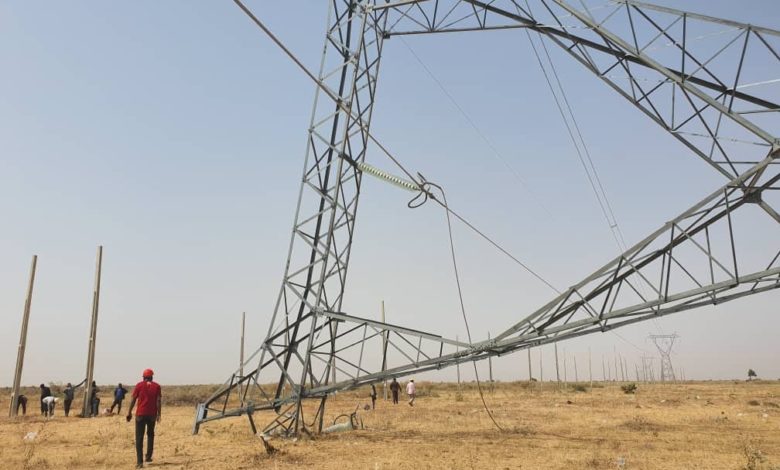Maiduguri Not Out Of Woods Yet Despite Electricity Restoration
As residents celebrate the return of electricity to Maiduguri after a two-month-blackout, there is a need for security measures around poorly guarded power installations.

Celebrations erupted in Maiduguri, the capital of Borno State in Northeastern Nigeria on Wednesday, March 24, following the restoration of power after almost two months of blackout.
Residents of Maiduguri had to turn to generators and solar systems for electricity supply to meet domestic and commercial needs.
The city suffered the power outage after Islamic State West Africa Province (ISWAP) blew up an electricity tower along the Damaturu-Maiduguri transmission line route.
The Damaturu – Maiduguri route, which links the state capitals of Borno and Yobe, is notorious for ISWAP activities including checkpoints where they screen and abduct commuters and ambush security forces.
The electricity situation was complicated after more towers on the same transmission line route were damaged during repairs of the initial tower damaged by improvised explosive device.
In response to the problem, the transmission company of Nigeria (TCN) initiated a temporary bypass to supply electricity to Maiduguri and the environs while reconstruction work was still going on the damaged towers.
On Saturday, Feb. 27, five electricity personnel were injured when a vehicle carrying them stepped on an IED planted by ISWAP. The incident brought the location’s vulnerability to the fore, and the risk faced by engineers and security forces working to reconnect Maiduguri to the county’s national power grid.
In Jan. 2020, the TCN reported that Boko Haram had cut-off Maiduguri from the National grid due to damages caused on the company’s facilities and transmission lines between Maiduguri and Damaturu.
The Damboa-Maiduguri transmission line has also received attention with the procurement of necessary equipment to facilitate work on the project that would serve as a second source of power supply to Maiduguri and the environs.
HumAngle has learned that there are, however, concerns over the vulnerability of power transmission installations and the need to prevent the recurrence of similar attacks by insurgents.
An advisory seen by HumAngle called for a special security team to be established with the support of the government, the electricity company and security agencies to constantly patrol locations of vulnerable electrical installations to deter attacks.
HumAngle understands that long term security and protection of vulnerable roads and power installations require security operations aimed at clearing harbour areas of insurgents close to the infrastructure or aimed at locations where attacks are coordinated.
Support Our Journalism
There are millions of ordinary people affected by conflict in Africa whose stories are missing in the mainstream media. HumAngle is determined to tell those challenging and under-reported stories, hoping that the people impacted by these conflicts will find the safety and security they deserve.
To ensure that we continue to provide public service coverage, we have a small favour to ask you. We want you to be part of our journalistic endeavour by contributing a token to us.
Your donation will further promote a robust, free, and independent media.
Donate HereStay Closer To The Stories That Matter




